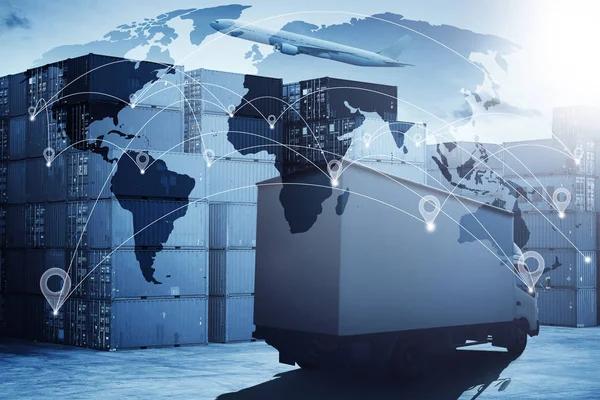
Future-Ready Transportation Logistics Services: AI, IoT, and Automation
The transportation and logistics industry is undergoing a transformative shift, driven by advancements in artificial intelligence (AI), the Internet of Things (IoT), and automation. These technologies are not only streamlining operations but also enabling businesses to meet growing customer demands for efficiency, speed, and sustainability. As global supply chains become more complex, future-ready transportation logistics services are emerging as a critical component of success.
AI has revolutionized decision-making processes in logistics by providing predictive analytics and real-time insights. With machine learning algorithms analyzing vast amounts of data, businesses can forecast demand patterns, optimize delivery routes, and manage inventory levels with unparalleled accuracy. AI-powered tools enable dynamic route optimization based on factors such as traffic conditions, weather updates, or fuel costs. This leads to reduced transit times and lower operational expenses while enhancing overall customer satisfaction.
IoT technology plays an equally significant role in modernizing transportation logistics. IoT devices embedded in vehicles or cargo containers provide real-time tracking capabilities that enhance visibility across the supply chain. Businesses can monitor shipment locations, temperature conditions click for in-depth information perishable goods, or even detect potential mechanical issues before they escalate into costly breakdowns. This level of transparency fosters trust between companies and their customers while ensuring that deliveries adhere to strict timelines.
Automation further amplifies these advancements by introducing robotics and autonomous systems into warehouses and delivery fleets. Automated guided vehicles (AGVs) streamline material handling within warehouses by efficiently moving goods without human intervention. Drones are being deployed for last-mile deliveries in urban areas where traffic congestion poses challenges for traditional transport methods. Autonomous trucks equipped with advanced sensors promise safer long-haul freight movement while reducing driver fatigue-related risks.
Moreover, these technologies collectively contribute to sustainable practices within the industry—a growing priority amid environmental concerns. AI-driven route optimization minimizes fuel consumption; IoT-enabled monitoring ensures efficient resource utilization; automation reduces waste generated during manual handling processes.
As we look ahead, the integration of AI, IoT, and automation will continue shaping the landscape of transportation logistics services. Companies investing early in these innovations stand to gain a competitive edge through enhanced operational efficiency and improved customer experiences. The future belongs to those who embrace smart solutions capable of adapting swiftly to evolving market dynamics while addressing pressing societal challenges like sustainability—a vision that is rapidly becoming reality thanks to technological progress.



